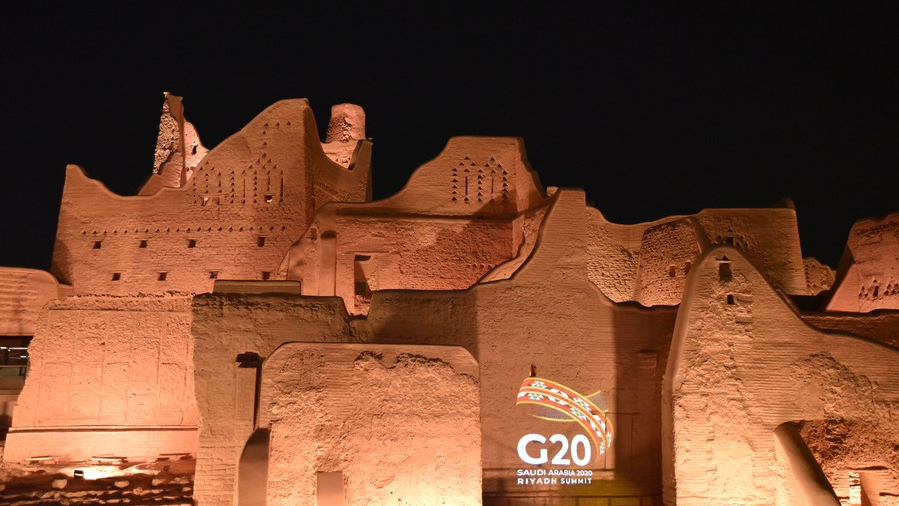The 2020 G20 Leaders’ Summit formally concluded on November 22, bringing into view a series of multilateral commitments and collective interventions aimed at breaking ground during the pandemic, and in its immediate aftermath – all for a world in need.
Leaders expressed their collective determination to strengthen COVID-19 vaccine distribution channels and production capacities, extend social protection guarantees to low-income countries, cement crucial debt-relief extensions, and communicate their “highest possible ambition” under the Paris Accord.
On the question of navigating the pandemic collectively, the G20 correctly indicates that the “unprecedented” financial and humanitarian costs can be best challenged through an even stronger focus on COVID-19 related health, economic, and social exigencies faced by developing countries at present.
More importantly, leaders render this diagnosis tangible by aligning their support with key collaborative efforts – notably the Access to COVID-19 Tools Accelerator (ACT-A) initiative and its COVAX facility – and zeroing in on swift, organized financial support for developing economies.
Nearly four dozen countries have already requested debt relief under the Debt Service Suspension Initiative (DSSI), equaling some $5.7 billion in critical debt service deferral for this year alone.
It is here that the G20’s latest decision to endorse “The Common Framework for Debt Treatments beyond the DSSI” extends relief timelines to mid-2021, consistent with the deteriorating economic outlooks of numerous low-income countries that may face challenges beyond a set timeline.
In a welcome move, finance officials from all 20 states will continue to monitor global economic behavior into the next year, and determine whether further extension of DSSI debt freeze merits consideration.

The logo of Group of Twenty (G20) being projected at a historic site in Diriyah, on the outskirts of Riyadh, Saudi Arabia, November 20, 2020. /Xinhua
Therefore, the G20’s demonstrated desire to internationalize economic recovery prospects, instead of confining them within its own territorial bounds, signifies its commitment to equitable global recovery.
Interestingly, part of that growth also owes to the effective and timely distribution of COVID-19 diagnostics, therapeutics and vaccines, as well as enduring partnerships that help prepare against future infectious and non-communicable diseases.
The G20’s embrace of its newly established Global Innovation Hub for Improving Value in Health is therefore a step in the right direction. The Hub serves as a dedicated platform for knowledge sharing that positions itself as a gateway for better Universal Health Coverage across countries.
It seeks to accomplish this goal by collecting evidence-informed expertise, and determine which health policies nations should fund, whether these health interventions reflect that country’s actual needs, and how financial risks to a given populace are best minimized.
Building on prior efforts of the World Health Organization (WHO), the Hub could play a key role in mainstreaming pandemic preparedness expertise and form a valuable front against future outbreaks.
Given pronounced contrasts between developed and developing countries in terms of income equality, education access, and living standards, it is only logical for the post-pandemic growth vision to identify as truly sustainable and inclusive.
G20 leaders offered an array of policy insights to realizing this ambition, including the sustainable integration of less developed economies into the global trading system – a point of reflection ahead of the World Trade Organization (WTO) reforms.
As far as a result-yielding framework for post-pandemic growth goes, Chinese President Xi Jinping demonstrated all-important focus on implementing the United Nations 2030 Agenda for Sustainable Development (SDG).
The agenda, significant to narrowing the “North-South gap,” does not necessarily limit headway on inclusive growth to the turn of the decade. China’s accelerated gains against absolute poverty – nearly a decade ahead of the 2030 Agenda schedule – is evidence that the conditions for achieving such sustainable growth can evolve with leadership imperatives, especially during the pandemic.
The G20 offered a clear conception of some of its own such imperatives, led by the 2020 Financial Inclusion Plan, which will serve as a catalyst for preexisting partnerships that help countries implement their financial inclusion SDGs for the next three years.
On climate, governments, civil societies, environmental activists, as well as broader coalitions for dedicated change may find plenty to seek comfort in. The G20 employed international cooperation as its lens to reiterate the disclosure of Member States’ “long-term low greenhouse gas emission development strategies” in 2020, and encouraged updates to countries’ highest possible “nationally determined contributions” under the Paris Accord.
By taking climate initiative into its own hands, the G20 dispels the notion that an external stimulus may be necessary to trigger progression on climate-aligned SDG commitments. Instead, the desire to commit to voluntary climate communication is a welcome departure from previous evidence that found G20’s climate commitments to be at relative odds with the emissions reductions goals set out under the Paris Accord.
A determined G20 alliance, therefore, can thrive on the back of clearly chalked-out priorities. Balancing resolve with instruments of delivery can end up accelerating the cause of a strong, sustainable, balanced, and inclusive post-COVID-19 era.



